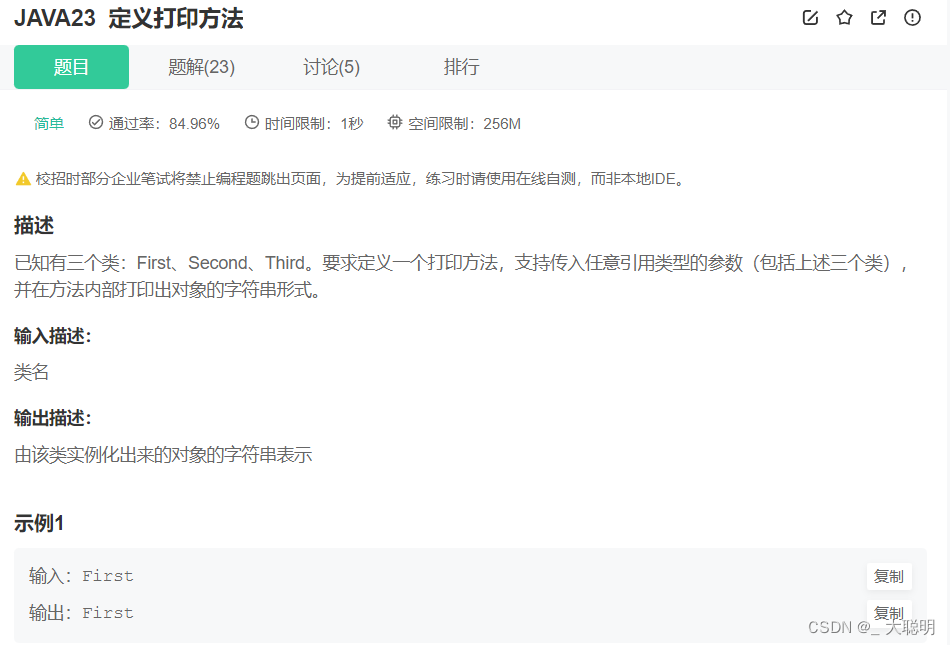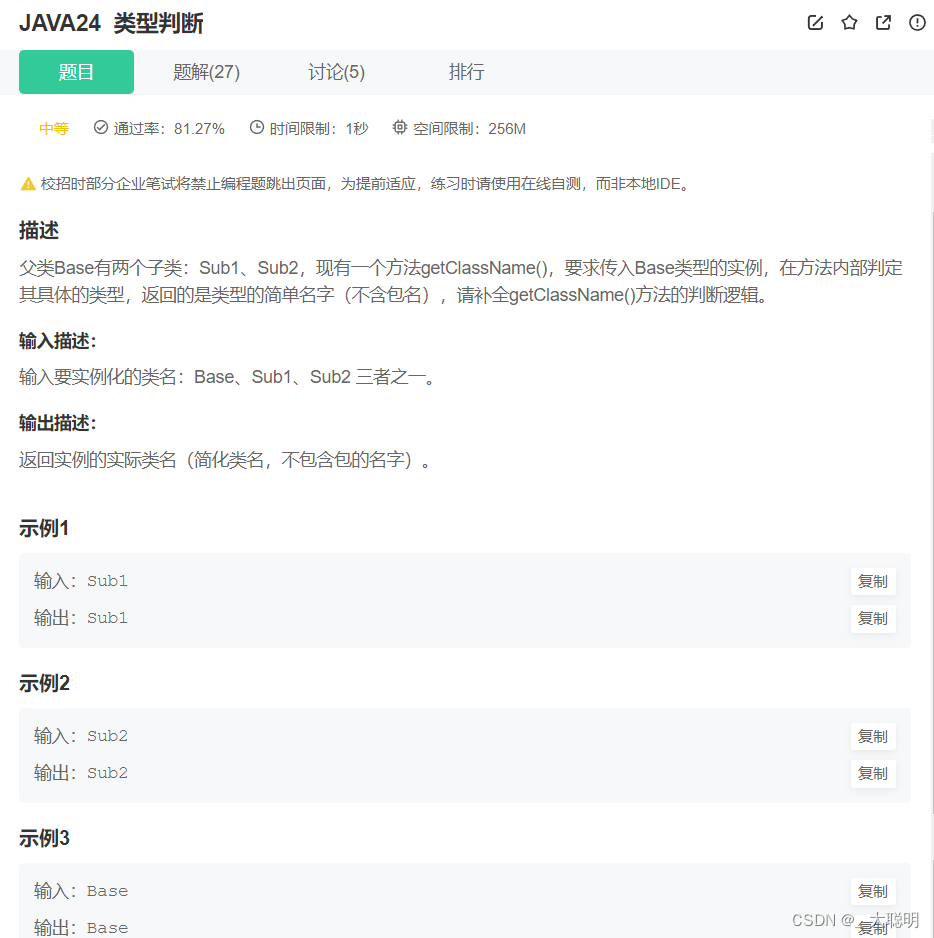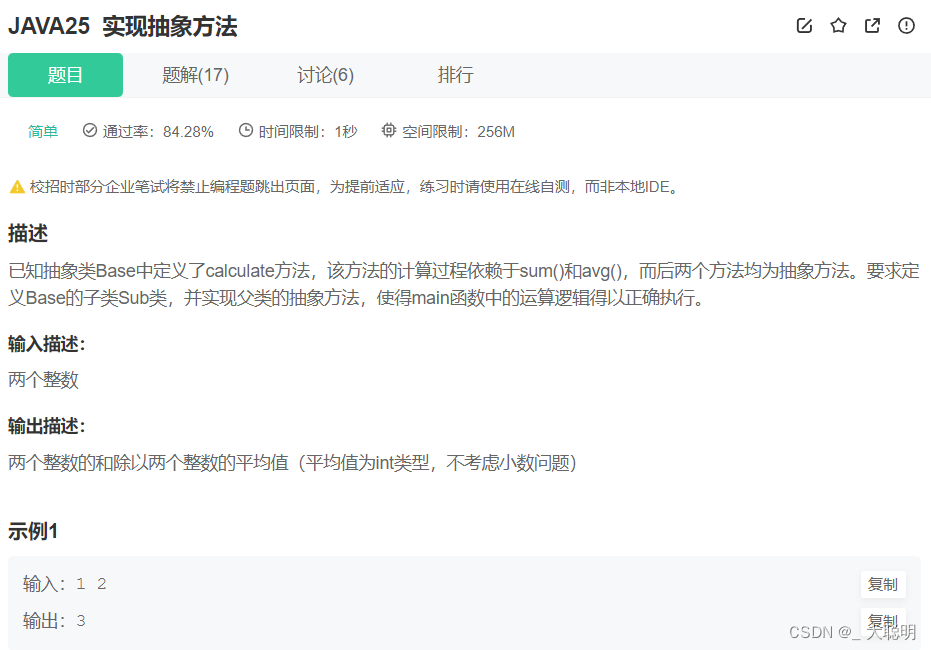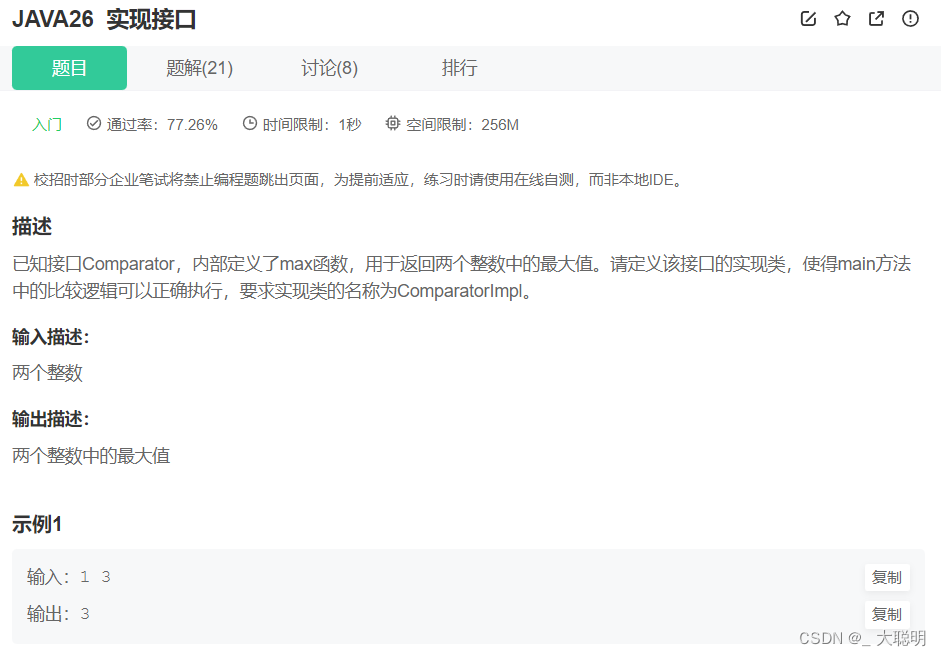This column "Hundred Days and Hundred Questions" has been updated for a long time, join this question brushing plan and grow together!
Article directory
JAVA23 defines the printing method [polymorphism]
topic:

answer:
import java.util.Scanner;
public class Main {
public static void main(String[] args) throws Exception {
Scanner scanner = new Scanner(System.in);
while (scanner.hasNext()) {
String className = scanner.next();
// print就是需要你定义的方法
print(Class.forName(className).newInstance());
}
}
public static void print(Object obj){
System.out.println(obj.getClass().getName()); //调用getName函数直接输出
}
}
class First {
public String toString() {
return "First";
}
}
class Second {
public String toString() {
return "Second";
}
}
class Third {
public String toString() {
return "Third";
}
}
JAVA24 type judgment [polymorphism]
topic:

answer:
import java.util.Scanner;
public class Main {
public static void main(String[] args) throws Exception {
Scanner scanner = new Scanner(System.in);
while (scanner.hasNext()) {
String className = scanner.next();
Base obj = (Base) Class.forName(className).newInstance();
System.out.println(getClassName(obj));
}
}
public static String getClassName(Base obj) {
if (obj instanceof Sub1) {
Sub1 sub1 = (Sub1) obj;
return sub1.getClass().getSimpleName();
} else if (obj instanceof Sub2) {
Sub2 sub2 = (Sub2) obj;
return sub2.getClass().getSimpleName();
} else {
return obj.getClass().getSimpleName();
}
}
}
class Base {
}
class Sub1 extends Base {
}
class Sub2 extends Base {
}
JAVA25 implements abstract methods [abstract classes]
Topic:

Solution:
import java.util.Scanner;
public class Main {
public static void main(String[] args) {
// Sub是需要你定义的子类
Base base = new Sub();
Scanner scanner = new Scanner(System.in);
while (scanner.hasNextInt()) {
int x = scanner.nextInt();
int y = scanner.nextInt();
base.setX(x);
base.setY(y);
System.out.println(base.calculate());
}
}
}
abstract class Base {
private int x;
private int y;
public int getX() {
return x;
}
public void setX(int x) {
this.x = x;
}
public int getY() {
return y;
}
public void setY(int y) {
this.y = y;
}
public int calculate() {
if (avg() == 0) {
return 0;
} else {
return sum()/avg();
}
}
/**
* 返回x和y的和
*/
public abstract int sum();
/**
* 返回x和y的平均值
*/
public abstract int avg();
}
class Sub extends Base {
public int sum() {
return super.getX() + super.getY();
}
public int avg() {
return sum() / 2;
}
}
JAVA26 implementation interface [abstract class]
Topic:

Solution:
import java.util.Scanner;
public class Main {
public static void main(String[] args) {
Comparator comparator = new ComparatorImpl();
Scanner scanner = new Scanner(System.in);
while (scanner.hasNextInt()) {
int x = scanner.nextInt();
int y = scanner.nextInt();
System.out.println(comparator.max(x, y));
}
}
}
interface Comparator {
//返回两个整数中的最大值
int max(int x, int y);
}
class ComparatorImpl implements Comparator {
@Override
public int max(int x,int y){
return x > y ? x : y;
}
}